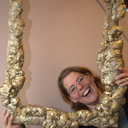Activated protein C resistance during in vitro fertilization treatment.
Cuvinte cheie
Abstract
Acquired resistance to the anticoagulant action of activated protein C (APC) has been proposed to explain the increased risk of venous thrombosis associated with pregnancy, hormone replacement therapy and the use of oral contraceptives. In this study, we have investigated whether the hormonal changes induced during in vitro fertilization (IVF) treatment are also associated with acquired APC resistance. Twenty-nine women, who were planned for an IVF cycle, donated blood at four time points during treatment, i.e. at baseline, down-regulation, hyperstimulation and luteal support. In the plasma samples, APC sensitivity ratios (APCsr) and the levels of progesterone and estradiol were measured. The changes in plasma concentrations of hormones were in accordance with literature. The APCsr increased significantly during hyperstimulation and remained high during luteal support. The extent of APC resistance occurring during IVF treatment was comparable to that observed during the use of second generation OC and was less pronounced than that occurring during pregnancy. The change in estradiol between baseline and hyperstimulation correlated with the change in APCsr. Although this suggests that plasma estrogen levels are an important determinant for acquired APC resistance, it remains to be established which plasma proteins are responsible for estrogen-induced APC resistance.


